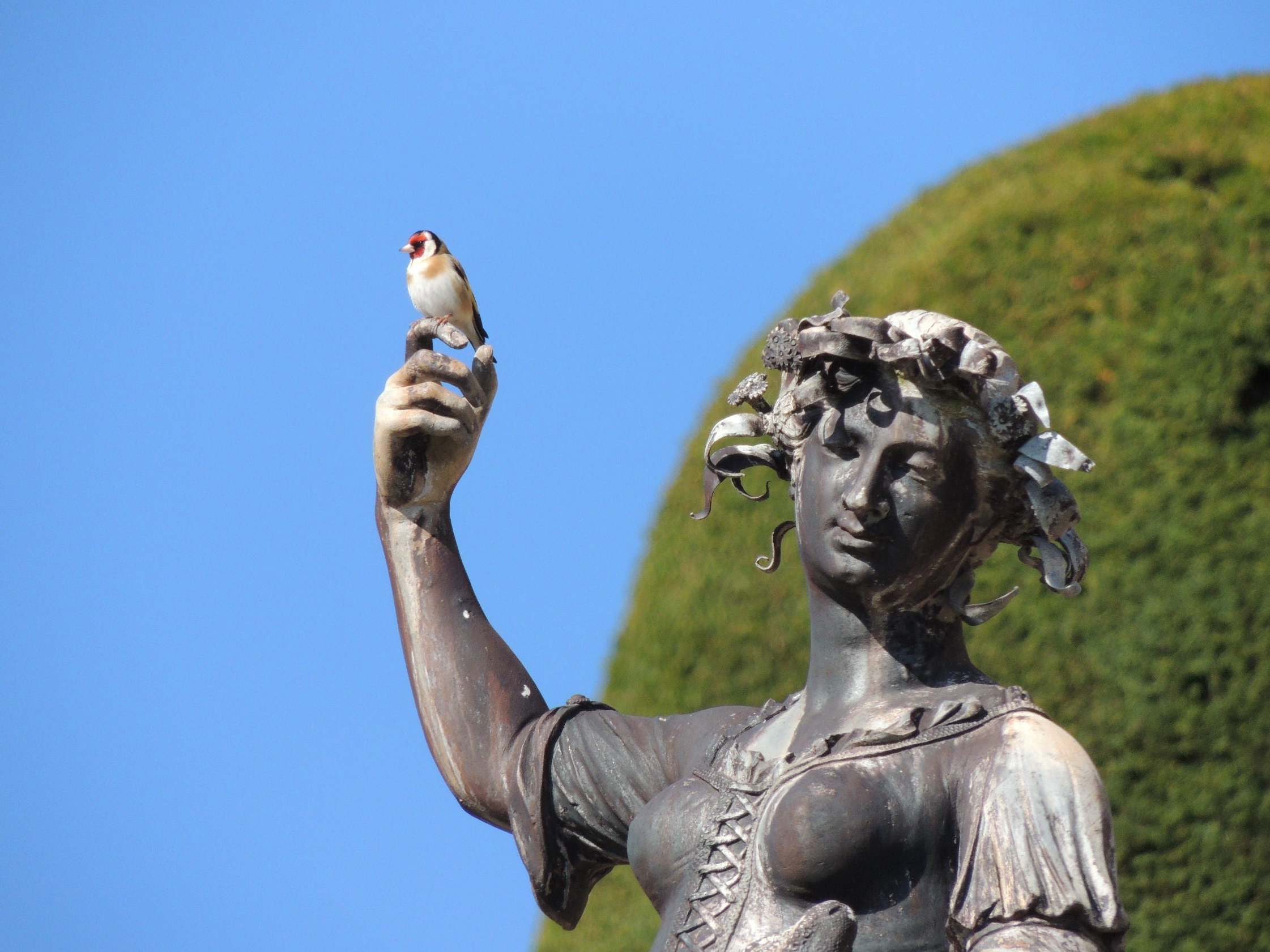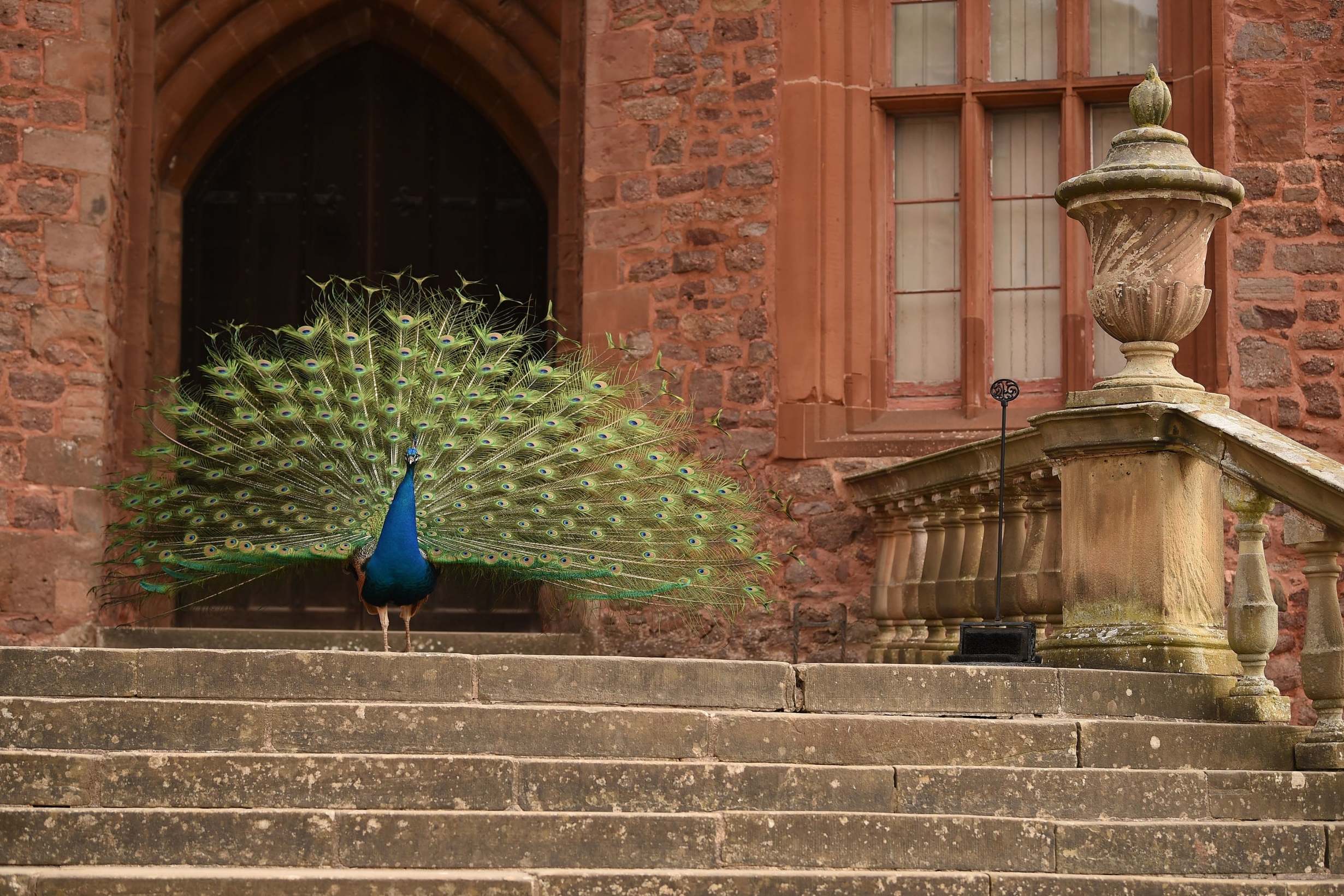Peregrine falcons, buzzards and weasels return to abandoned National Trust properties for first time in decades
Wildlife plays while the lockdown keeps visitors away, writes Kate Ng


With a number of National Trust properties devoid of human visitors as the coronavirus lockdown continues to keep people at home, some species have made a return for the first time in decades.
Rangers and gardeners looking after shuttered historic houses, castles, parks and gardens are reporting sightings of wildlife that has become emboldened to reclaim their now-undisturbed surroundings.
Peregrine falcons have been seen nesting on the ruins of Corfe Castle in Dorset, while pied flycatcher birds visiting nest boxes in Lydford Gorge.
Gardeners at Ham House in London have spied small owls venturing further into the garden from nearby river meadows and curlews – the largest European wading bird recognisable for its long curving bill – have been heard in the Peak District.
Some locals have reported seeing roe deer in the Dunham Massey National Trust estate for the first time.
From the woodlands come hares, stoats and weasels to explore Plas yn Rhiw gardens on the Llyn Peninsula, while otters explore the lake in the grounds of the Mount Stewart neo-classical house in County Down. In Norfolk, a buzzard was seen as far as the orangery at Felbrigg Hall.
The Trust said it isn’t just fauna enjoying the absence of humans – flowers such as bluebells and wood anemones have also been growing in abundance.
But not all animals are enjoying the lack of human company. At Powis Castles in Wales, the peacocks that live on the grounds now follow the gardeners as they go about their daily tasks, and jackdaws – who feed on box moth caterpillars and scraps dropped by people – have not returned to Ham House since lockdown began.
Still, the return of wildlife to sites after long absences has been a welcome one. A cuckoo was heard calling Osterley for the first time in 20 years, while the peregrines had not nested in Corfe Castle since the 1980s, until now.
David Brown, an ecologist for the National Trust at Corfe Castle, said: “With the site the quietest it has ever been, the great curtain walls are an ideal spot for these powerful birds, which look for isolated and inaccessible places to build a nest.
“Amongst all the uncertainty, it has been heartening to see nature colonising the landscape in our absence.”
Ben McCarthy, head of nature conservation at the Trust, said the wildlife appeared to be “enjoying the breathing space” although it has been just eight weeks since the lockdown started.
“With less traffic and fewer people, we’ve heard deafening levels of birdsong and seen famous monuments and formal gardens colonised by wildlife.
“Nature’s recovery is still a long way off, but the fact that people are noticing what’s around them is something to be celebrated,” added Mr McCarthy.

The Trust is working on its reopening plans and is set to introduce a booking system. Hillary McGrady, director general of the Trust, said the parks and gardens will be the first to reopen, but National Trust houses are unlikely to reopen before late August.
She told the Digital, Culture, Media and Sport Select Committee that while the Trust is “desperate to open” as soon as it is safe to do so, it is looking at doing so in a “really controlled and careful way”.
“It is incredibly important just for, apart from anything else, the mental wellbeing of the nation that they can get out, and access places like the National Trust,” said Ms McGrady.
“We offer incredibly safe spaces for people to be able to visit, and just, you know, have a bit of space and access to nature and we think it’s really important to get doing that sooner rather than later.”
However, as visitors start to make their way to National Trust countryside and coastal sites as lockdown restrictions ease, the charity is urging people to be cautious of the wildlife that have reclaimed new areas.
Join our commenting forum
Join thought-provoking conversations, follow other Independent readers and see their replies
Comments